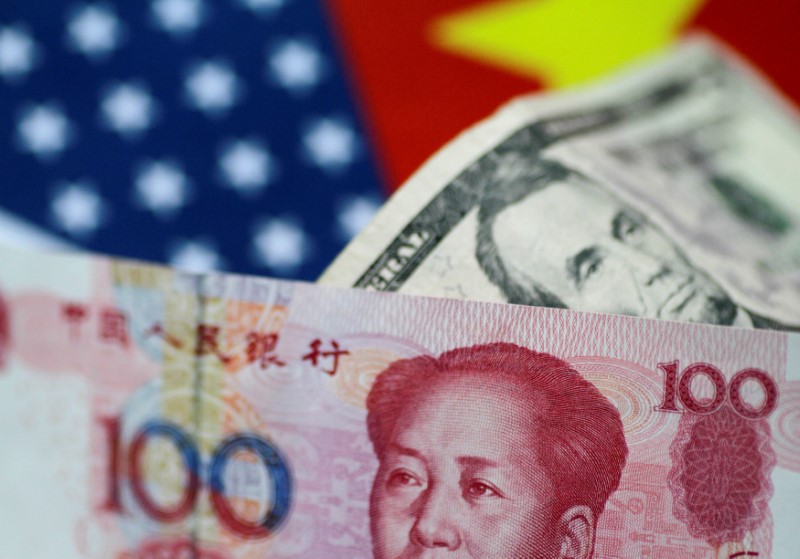(Bloomberg) -- News that the White House is considering broadening its trade war with China into a financial flow war and discussing controls on capital coursing between the U.S. and China shook financial markets on Friday. So it is worth pointing out the context.
What unnerved markets about the internal deliberations, first reported by Bloomberg News, was that they seemed like an extreme departure from the U.S.’s longstanding free-market orthodoxy. U.S. officials have for decades advocated opening financial markets around the world to capital. That the discussion is even taking place, therefore, is eye-popping for many in the world of international finance.
Yet the Trump administration’s deliberations are not happening in isolation. Some of the loudest backers of the tariffs President Donald Trump has imposed also advocate capital controls aimed at both managing what they see as damaging currency imbalances and limiting China’s access to America’s financial might.
There are now at least two bills circulating in Congress that could result in capital controls if they passed.
One bipartisan piece of legislation sponsored by Senators Tammy Baldwin and Josh Hawley calls for the use of a “market access charge” to reduce foreign purchases of U.S. stocks, bonds and other assets. Their goal: limiting the flow of foreign capital into U.S. markets in order to halt what they see as the unhealthy appreciation of the dollar.
Another bipartisan bill pushed by Senator Marco Rubio, the Florida Republican and China hawk, would force Chinese and other foreign companies listed on U.S. exchanges or invested in by U.S. pension funds to comply with U.S. auditing standards. If they didn’t, firms could be delisted from U.S. bourses or banned from outbound investment. The thinly veiled goal: Limiting the flow of American capital into Chinese companies.
Advocates of both bills argue they would help address what they see as an increasingly poisonous economic imbalance between the U.S. and China and what Trump and others see as the economic damage wrought by what they label an unnaturally strong dollar.
Few economists believe that U.S. capital controls would be a good idea, it should be pointed out. Speaking at a Washington think-tank this month, Gita Gopinath, the International Monetary Fund’s chief economist, was asked whether the fund, which has dropped its blanket opposition to capital controls in recent years, thought the U.S. should consider them.
It did not, she answered politely. The case for their use remained one reserved for fragile emerging markets confronting “severe market turmoil,” she offered. “It’s harder to make those arguments when you are thinking about advanced economies with well-developed financial markets.”
